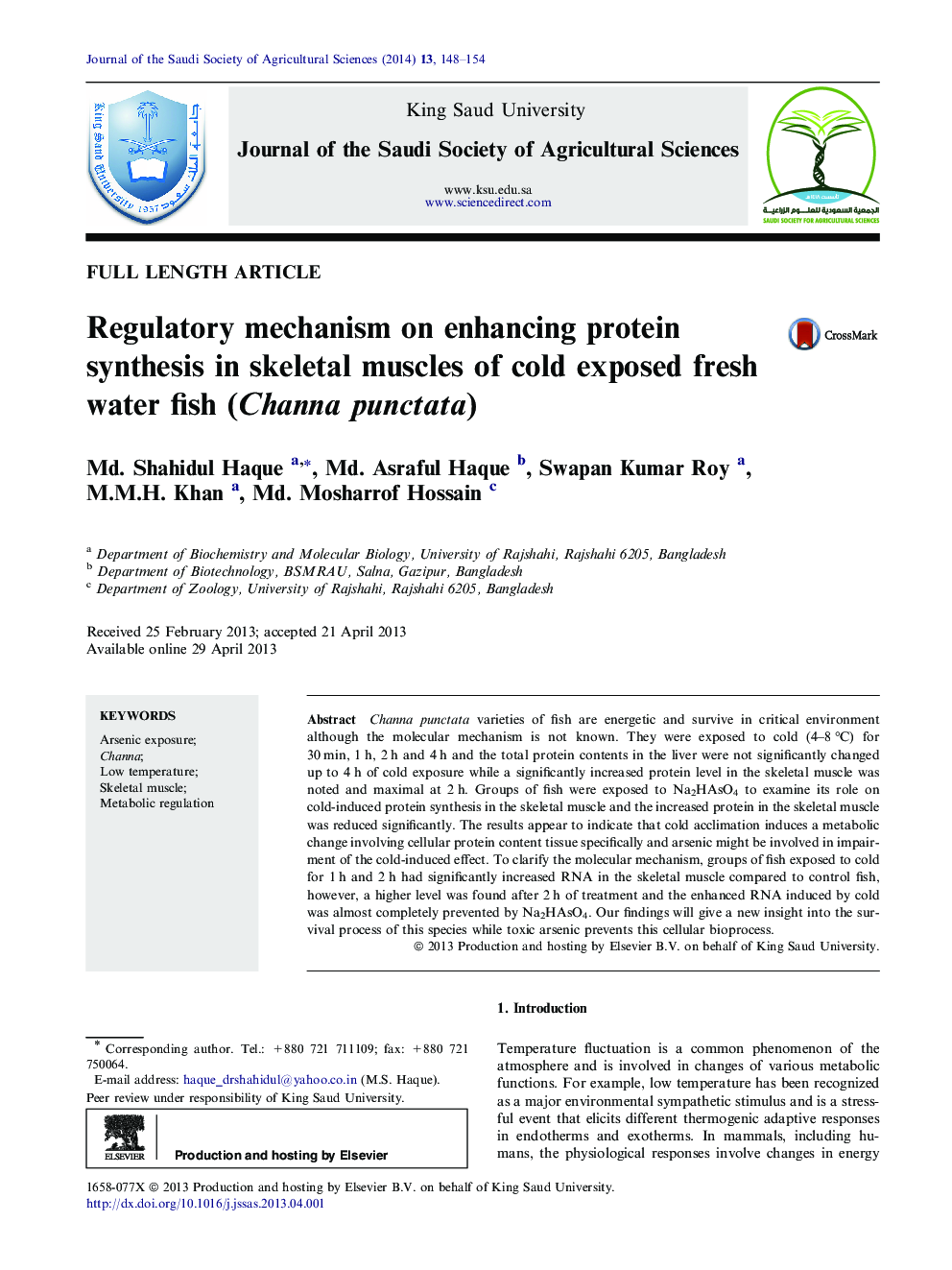| Article ID | Journal | Published Year | Pages | File Type |
|---|---|---|---|---|
| 4495612 | Journal of the Saudi Society of Agricultural Sciences | 2014 | 7 Pages |
Channa punctata varieties of fish are energetic and survive in critical environment although the molecular mechanism is not known. They were exposed to cold (4–8 °C) for 30 min, 1 h, 2 h and 4 h and the total protein contents in the liver were not significantly changed up to 4 h of cold exposure while a significantly increased protein level in the skeletal muscle was noted and maximal at 2 h. Groups of fish were exposed to Na2HAsO4 to examine its role on cold-induced protein synthesis in the skeletal muscle and the increased protein in the skeletal muscle was reduced significantly. The results appear to indicate that cold acclimation induces a metabolic change involving cellular protein content tissue specifically and arsenic might be involved in impairment of the cold-induced effect. To clarify the molecular mechanism, groups of fish exposed to cold for 1 h and 2 h had significantly increased RNA in the skeletal muscle compared to control fish, however, a higher level was found after 2 h of treatment and the enhanced RNA induced by cold was almost completely prevented by Na2HAsO4. Our findings will give a new insight into the survival process of this species while toxic arsenic prevents this cellular bioprocess.
